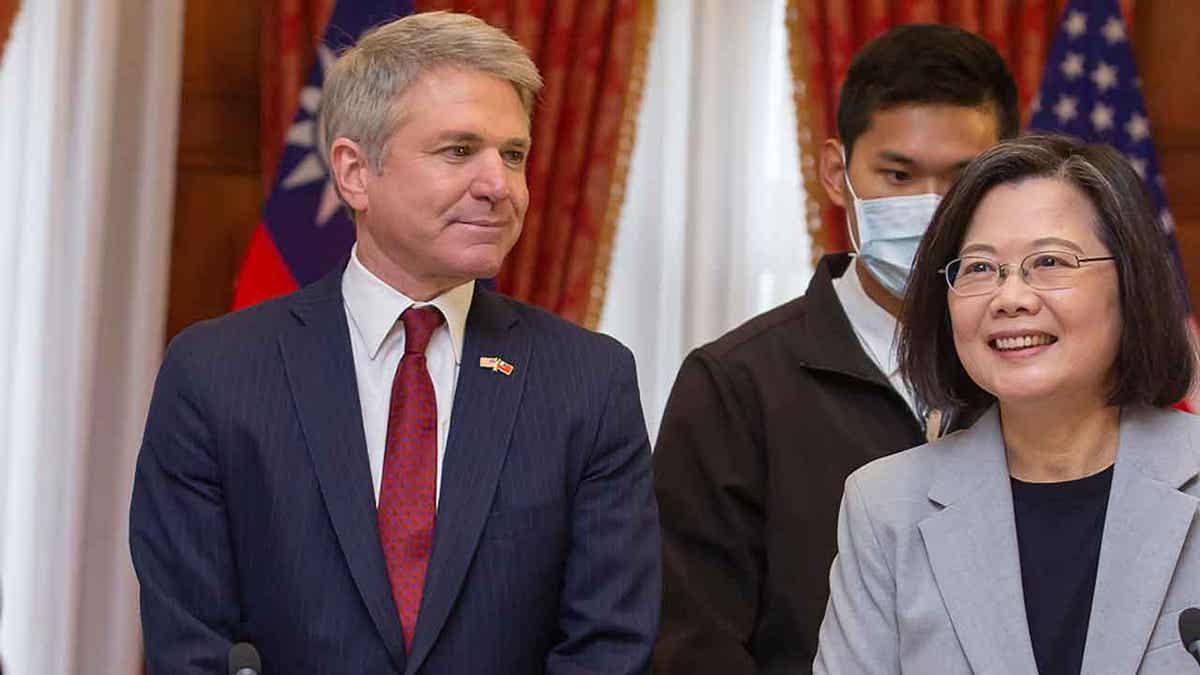Fox News Flash top headlines for April 14
Fox News Flash top headlines are here. Check out what's clicking on Foxnews.com.
China sanctioned a United States lawmaker Thursday for his visit to Taiwan, saying he violated the "One China" principle that says Beijing has sovereignty over the island.
The mainland’s ruling Communist Party says Taiwan, which split from the mainland in 1949 amid a civil war, must be reunited with China by force if necessary. Beijing says Taipei has no right to conduct foreign relations and views visits by U.S. lawmakers to the island as violating its claims of sovereignty.
The sanctions against Rep. Michael McCaul include freezing his assets and properties in China, prohibiting any organization or individual in China from conducting transactions or working with him, and denying him a visa to enter the country, according to a statement Thursday from China's Ministry of Foreign Affairs.
CHINA WILL NOT SELL WEAPONS TO EITHER SIDE IN THE WAR IN UKRAINE, ACCORDING TO FOREIGN MINISTER
It's one of several rounds of sanctions China announced as tensions build between Beijing and Washington.
China retaliated for U.S. House Speaker Kevin McCarthy’s meeting on April 5 with Taiwanese President Tsai Ing-wen by sanctioning the Ronald Reagan Presidential Library and other organizations, adding to strains over the self-governed island democracy Beijing claims as part of its territory. It then launched a large-scale three-day military exercise surrounding the island, sending more than 200 warplanes toward Taiwan.

House Foreign Affairs Committee Chairman Michael McCaul, left, attends a luncheon with Taiwan's President Tsai Ing-wen, during a visit by a Congressional delegation to Taiwan in Taipei, Taiwan, on April 8, 2023. China sanctioned Rep. McCaul on April 13, 2023, for his visit to Taiwan. (Taiwan Presidential Office via AP, File)
McCaul, R-Texas, visited Taiwan from April 6 to 8 to discuss weapons deals between the U.S. and Taiwan, shortly after the sensitive meeting that drew China's ire.
THE CRAZY IDEA TO ABANDON UKRAINE FOR CHINA
"Being sanctioned by the Chinese Communist Party is a badge of honor," McCaul said in a statement. "Nothing will deter the United States from supporting free, democratic nations — including Taiwan."
McCaul, who chairs the House Foreign Affairs Committee, has been advocating for a hard-line stance against China and closer ties with Taiwan.
CLICK HERE TO GET THE FOX NEWS APP
Relations between the U.S. and China have sunk to historic lows. The U.S. has been increasingly critical of China’s human rights record, its handling of the COVID-19 pandemic, and its actions in Hong Kong in clamping down on protests. China, on the other hand, has been accusing the U.S. of meddling in its internal affairs, and pursuing a containment strategy against China to prevent the country's rise.

